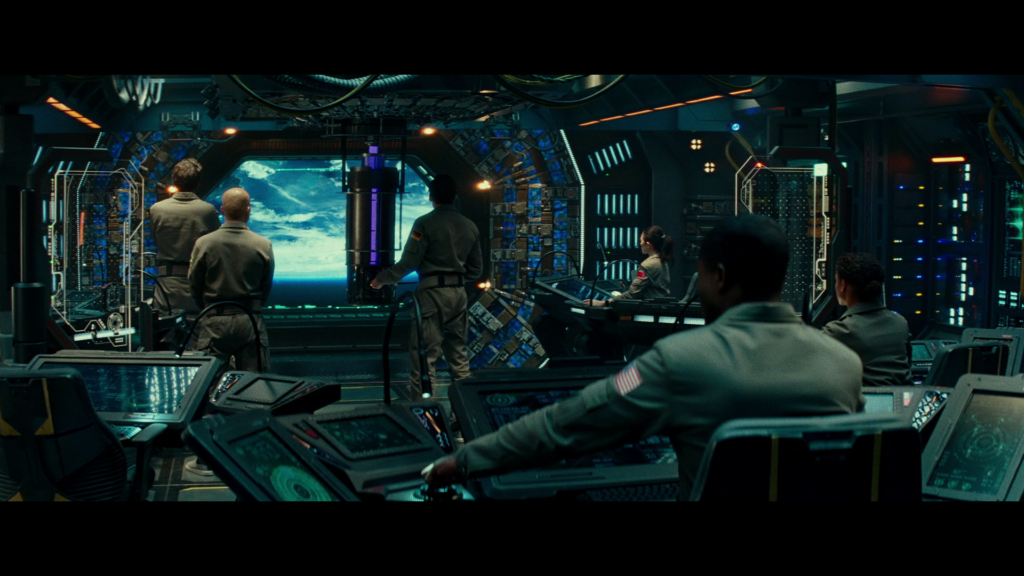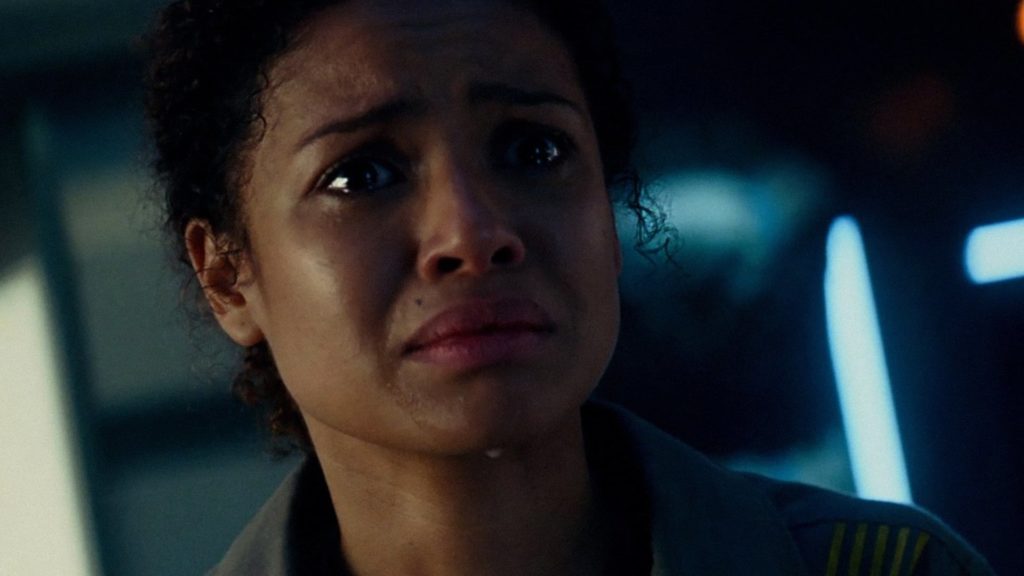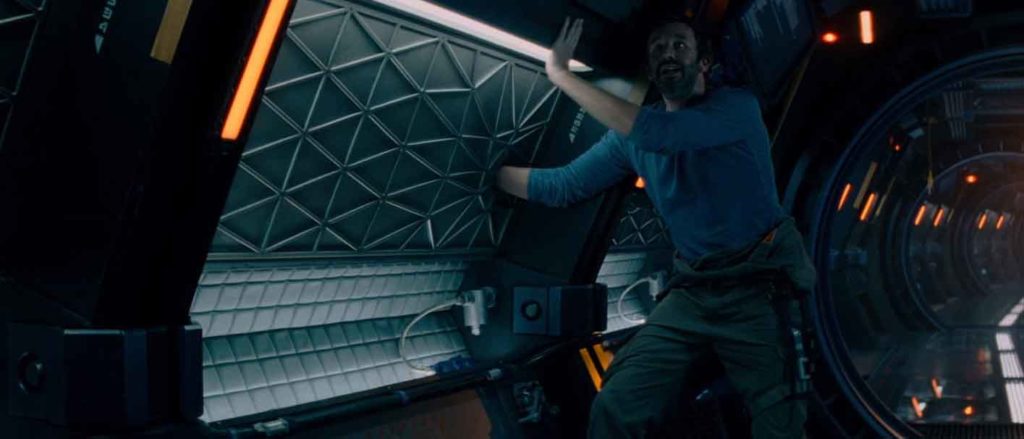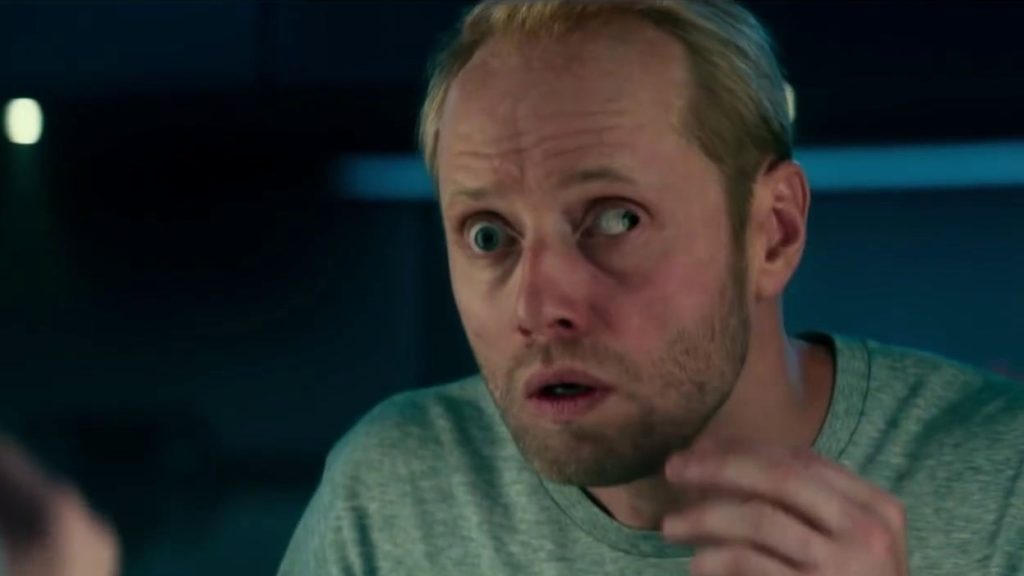The discourse around Cloverfield films has largely been a product of the hype and intrigue meticulously built by producer J.J. Abrams. Thus, it was little surprise when the The Cloverfield Paradox, the third of these movies — which had an enigmatic production, a banger of a working title (“The God Particle”), and an unconventional surprise release on Netflix — premiered with enormous buzz. The preceding two Cloverfield films were well reviewed, so why couldn’t a third be great? But The Cloverfield Paradox was outright panned — it sits at 22% on Rotten Tomatoes.
I approach this film on the other side of the horizon. The critics drubbed the film as “dumb trash.” Imagine my surprise when I watched it and found that it is… well, okay, dumb trash. But it’s fun dumb trash — and that makes all the difference in the world.

Recently, we’ve been starved for enjoyably cheesy, faux-cerebral sci-fi epics. For example, the yawn-inducing 65 promised time-traveling astronauts battling dinosaurs but devolved into a generic escort mission movie in a jungle without any of the goofy brain-benders the opening fifteen minutes suggest. By contrast, I found myself savoring every absurd twist and turn offered by The Cloverfield Paradox.
Much like 10 Cloverfield Lane, this film’s narrative runs parallel to the original Cloverfield. However, Paradox ties more directly into the overarching kaiju alien conspiracy of the 2008 original. Like with 10 Cloverfield Lane, I think connecting it to the original Cloverfield premise does not improve the story: The weakest aspects of Paradox are those that insinuate a connection to the Cloverfield monster, never ultimately providing any interesting answers or even satisfying ambiguity. It’s abundantly clear that the Cloverfield franchise was appended in a late script revision, with little regard for the core narrative of the draft. Maybe “Cloverfield” should just be an anthology brand at this point.

The Cloverfield Paradox is set on a space station, where the crew attempts to carry out a sci-fi MacGuffin laser-blast operation, purportedly providing infinite energy to Earth via sci-fi babble quantum wizardry. The procedure, alas, risks the accidental opening of wormholes. No big deal. The crew, including our protagonist, the engineer Ava (Gugu Mbatha-Raw), flips on the switch and the operations appears to succeed until a power surge destabilizes the station. When the systems reboot, everything seems normal until they discover that… Earth has vanished! Holy shit, no more humanity! This is the first of the movie’s delightful and goofy alternate universe twists that take place within the confines of the space station.
The crew, portrayed by a diverse and talented cast, is a highlight of the film. Alongside Mbatha-Raw’s Ava, we’re introduced to physicist Ernst (Daniel Bruhl), medical doctor Monk (John Ortiz), ship captain Jason (David Oyelowo), and engineers Gordon (Chris O’Dowd), Ling (Zhang Ziyi), and Sasha (Aksel Hennie). All fun to hang with.

One of the film’s quirks is its shifting tones. Gordon, played by O’Dowd, offers some unexpected and abrupt comedy that I found charming rather than jarring, perfectly undercutting the intense multiverse ponderings. He is subject to some of the silliest and cruellest of the movie’s multiverse contrivances.
Beyond its sci-fi action cheese, the film also packs a surprising emotional punch. Amidst the alternate universe gimmick, Ava — mourning the loss of her children — grapples with a new and profound pain: She realizes, in an alternate universe, the accident that killed her children might be avoidable. Mbatha-Raw delivers the emotional material very well, such that it holds up despite the the busy sci-fi material and light comedy surrounding it.
The weakest of the film’s subplots features Ava’s husband Michael (Roger Davies). He is dealing with the Cloverfield disaster back on Earth. This narrative thread feels phoned-in and superficial, culminating in a stinger story beat that feels so much like a Lost episode cliffhanger that I might have guessed Abrams’ involvement even without prior knowledge.

The addition of an alternate universe layer also injects an intriguing layer of suspense that I have never seen rendered quite this way before. It asks how much characters might vary across different universes. For example, when we learn that a character sabotaged the team in one universe, it immediately raises questions whether that character will do the same in the “prime” universe. With the characters doubting each other and contained in a tight, isolated setting, these parts of the film evoke The Thing.
As fun and goofily scattershot as I found the movie, it is certainly on the shallow side. Ava is the only character with anything resembling depth or an arc. The majority of the cast exist solely to fall victim to the various reality-altering twists of the movie.

Nonetheless, I thoroughly enjoyed The Cloverfield Paradox. I smiled the whole time. It leans heavily on genre tropes, but its inventive and unhinged spirit offers some surprising entertainment. It lacks the seriousness of the previous Cloverfield films, and it may be disadvantaged by its connection to the franchise, but I view it as a success of stupid-fun sci-fi in its own right.
- Review Series: Damien Chazelle
Is It Good?
Good (5/8)
Dan is the founder and head critic of The Goods. Follow Dan on Letterboxd. Join the Discord for updates and discussion.

